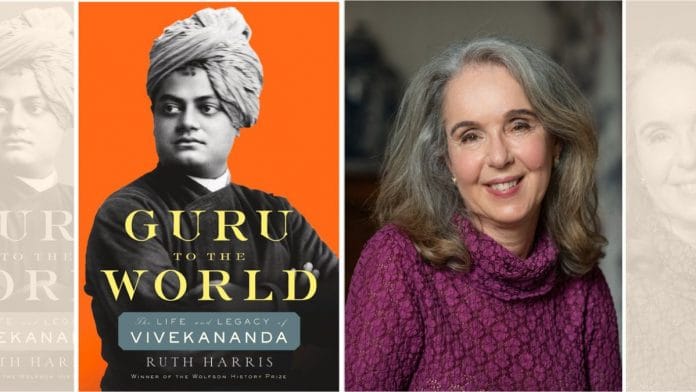New Delhi: Harper Collins India, in collaboration with Harvard University Press, is all set to launch a new series of talks curated by writers and thinkers from around the world called ‘The Lecture.’ The inaugural lecture will feature a discussion with Ruth Harris’ new book Guru to the World: The Life and Legacy of Vivekananda at the India Habitat Centre’s Stein Auditorium in New Delhi on 27 January at 7pm.
The lecture will centre on Harris’ definitive biography of Swami Vivekananda, the Indian philosopher and monk who shaped both eastern and western intellectual and spiritual history.
The biography of author Ruth Harris, an American historian, shows how Vivekananda’s thought spawned a global anticolonial movement and became a touchstone of Hindu nationalist politics a century after his death. The ‘iconic’ monk emerges as a counterargument to Orientalist critiques, which interpret East-West interactions as primarily instances of Western borrowing.
According to Harris, Vivekananda was not merely a shaper of a reinvigorated Indian self-identity, nor even an influence on the Western intellectual and spiritual tradition. Instead, he contributed to the creation of a global amalgam that, by itself, calls for more research.
Published by Harvard University Press, Guru to the World traces Vivekananda’s transformation from the son of a Calcutta-based attorney into a saffron-robed ascetic. At the 1893 World’s Parliament of Religions in Chicago, he fascinated audiences with teachings from Hinduism, Western esoteric spirituality, physics, and the sciences of the mind. In that process, he advocated for a more inclusive conception of religion while also expounding the evils of colonialism.
Harris intends to provide an integrated and interpretive history of Vivekananda’s global project. She also sheds light on his many disciples, most prominently the Irish activist Margaret Noble – sister Nivedita – who disseminated his ideas in the face of much disdain for the wisdom of a ‘subject race.’
In India, Vivekananda challenged the notion that religion was antithetical to nationalist goals, arguing that Hinduism was intimately connected with Indian identity.
Ruth Harris is a Senior Research Fellow at All Souls College and Professor of European History at the University of Oxford.
ThePrint is a media partner. Register for the event here: http://bitly.ws/xUEQ






